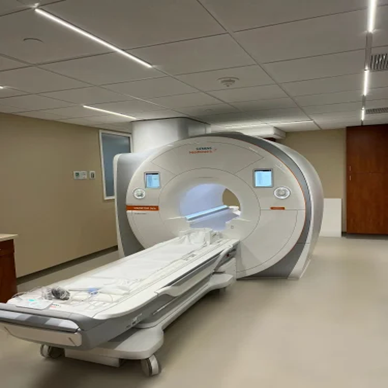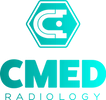Quick Enquiry

Best 1.5T MRI Machine Price and 1.5T MRI Machine Options
Best 1.5T MRI Machine Price and 1.5T MRI Machine Options
MRI stands for Magnetic Resonance Imaging, which is considered by many as the most crucial of all modern diagnostic technologies in the healthcare system. It is unmatched in precision and clarity in the area of soft tissue imaging. Of all the various MRI machines types, the 1.5T MRI machine is still the most available and widely used model in hospitals, diagnostic centers, and imaging labs. How much does a 1.5T MRI cost, and what good options does the market offer today? If you're looking to purchase such essential equipment, informed choice on the 1.5T MRI machine price and models available would go a long way towards making value-driven decisions.
In this blog, we would cover everything about prices of 1.5T MRI machines, from the dynamics of pricing to top brands to buying considerations to future-proofing your investments.
Understanding the 1.5T MRI Machine: A Proven Standard in Imaging
This 1.5 Tesla MRI machine operates at a magnetic field strength of 1.5 Tesla, an ideal match between image quality, scan time, and operational cost. It has been the gold standard in radiology for many years as it enables scanning of brain, spine, abdomen, joints, and even the cardiac regions with excellent accuracy and versatility.
This type of machine produces high-quality images that meet most diagnostic requirements without the high cost and infrastructure of 3.0T machines. 1.5T MRI Machine Price with a very well-established clinical record has numerous existing imaging protocol compatibilities and still remains a first choice among new imaging centers and expansions of already existing facilities.
From the practical point of view, installation and maintenance are made easier by the low-field MRIs compared to those of high field ones, besides consuming less power, lowering overall running costs while integrating easily into midrange diagnostic systems that are not matched to the higher-demand scenario.
Price breakdown: what causes the cost of a 1.5T MRI machine?
Price is worth considering when determining the most favorable 1.5T MRI Machine Price; it's essential to note that quoted prices can differ widely depending on several deciding factors. New 1.5T MRI systems are selling from ₹5 crore-10 crore (around $600,000 to $1.2 million USD) depending on make, model, configuration, and other features. Brand and model as one of the significant cost determinants. Some of the leading OEMs like GE Healthcare, Siemens Healthineers, Philips, and Canon manufacture high-performance 1.5T MRI machines. Generally, newer models with more advanced software for cardiac imaging and faster scanning protocols attract a higher price tag.
In comparison, refurbished or simply used 1.5T MRI machine are available at discounted rates usually earning between ₹1.5 crore - ₹3.5 crore depending on various factors such as age, conditions, and software upgrades. These can be highly attractive to budget-strapped facilities if bought from a reputable refurbishment provider.
Gradient performance and slew rate – which damages clarity. The transmission speed affects the quality of the image and the time for scanning.
Other cost determinants include:
RF channels and coils - the more advanced and versatile the coil set, the higher the price.
Installation and site planning - including shielding, electrical upgrades, and construction.
Warranty and service agreements - extended support plans increase upfront cost but save long-term expenses.
At the end of the day, the selection of the best price should be in correspondence with the clinical needs and existing budget criteria but ensuring a system that is maintainable and ready for upgrades.
Best 1.5 T machines for MRI in 2024-2025
Price mentioned is right, what are the most availed and among the most saleable 1.5T MRI machines out there today? Every company puts unique characteristics in terms of providing imaging capabilities, patient comfort, or operational efficiency.
1. GE Signa Explorer 1.5T -
One of the most balanced and user-friendly systems GE developed, it has the right mix of reliability, image quality, and, above all, throughput. The Signa Explorer combines GE's proprietary digital RF technology together with sophisticated noise-reduction software to produce beautiful images without undue patient discomfort.
2. Siemens MAGNETOM Sempra 1.5T -
Siemens is known for very intuitive software with high clinical efficacy. The Sempra comes standard with DotGO automated workflows that help streamline scan planning and reduce time spent training technicians. Other features are Tim 4G technology, which enhances spatial resolution and shortens scan time.
3. Philips Ingenia 1.5T
Best positioned in the market on dStream digital broadband capability for excellent image quality and a consistent signal throughout the scan, patient journey made smoother with wide-bore systems, and quiet scanning technologies by Philips adopting to patient experience.
4. Canon Vantage Elan 1.5T
The system is compact and powerful considering the available space in the facility. With Pianissimo technology, patients undergo very quiet scans with a set of advanced image sequences dedicated to spine, neuro, and ortho applications.
These machines always produce a good compromise between capital expenditure and operational costs while covering a very broad spectrum of diagnostic requirements.
Factors To Consider When Choosing Your 1.5T MRI
Knowing how to make the right purchase is a question that goes beyond just comparing prices and features; it needs to be a strategic choice based on the 1.5T MRI machine that meets your practice's clinical priorities, patient demographics, and long-term growth plans.
Consider Your Patient Volume and Case Mix:
If your facility manages a broad range of cases, from carrying out examinations in neurology and musculoskeletal to cardiac imaging, then a system with versatile coil support and flexible scanning protocols should be considered.
Review Site Requirements:
Ensure the machine's footprint is matched with your infrastructure. Some existing buildings might require converted structural features suitable for accommodating the newly installed systems demanding higher cooling or shielding.
Examine Workflow Integration:
Modern MRI systems are provided with software to speed up the scanning procedure. Automated features like AutoAlign and pre-programmed protocols reduce scan-to-scan variance, allowing less-experienced techs to achieve similar results consistently.
Plan for Future Upgrades:
Select a system from the onset that allows for upgrades for coils, software, or digital connectivity, even if it is a refurbished system. This prolongs the investment's life and retains the facility in the competition.
After-Sales Support and Service Network:
Choose vendors with exceptional service coverage within your region. Quick support response time and locally available inventory of spare parts score on greatly reducing downtime.
New Vs Refurbished: Which Provides Better Value?
Deciding on one of the major ones will be to choose between purchasing a new or refurbished 1.5T MRI. Each has its benefits, and the selection should depend on the budget, patient load, and expected ROI.
New MRI 1.5T Machine offers cutting-edge performance, longer warranties, and better customization options. It suits hospitals and diagnostic centers experiencing high patient volumes and requiring state-of-the-art automation and image quality.
The refurbished machine represents the lower price entry option, especially for startups or facilities in Tier 2 and 3 cities. Renowned refurbishers restore refurbishing MRI systems to OEM standard including coil testing, magnet tuning, and complete re-installation. When purchased from a reliable vendor, the refurbished could perform as new: with a 40-60% lower pricing.
Whichever path you choose, insist on a comprehensive service contract, a clear maintenance history for used equipment, and adequate coil and software support.
Summing Up
There may not be an across-the-board answer for your investment in a 1.5T MRI machine, but there will surely be a best-fit answer for all places. Whether a high-throughput hospital or a special-use clinic, meshing your clinical objectives with price and options for the best 1.5T MRI machine will put the practice into a successful terrain of long-term progress.
Prioritize the brands and models that match your patient demographics, site constraints, and imaging requirements. Always work with verified vendors that can support installation and maintenance, as well as after-sales service. Affordability isn't about cutting corners—it's all about making informed choices that will ensure you give quality care while optimizing your investment.
Key Highlights: Best 1.5T MRI Machine Price and Options
Frequently Asked Questions (FAQs)
1. What is a 1.5T MRI machine, and why is it widely accepted in use?
A 1.5T MRI machine works with a magnetic field strength of 1.5 Tesla, which stands for a good compromise between neither too clear nor too quick but provides a fair degree of comfort to the patient. The 1.5T MRI machine is good for numerous diagnostic imaging needs, and thus, one of the most widely accepted systems in hospitals and imaging centers.
2. What companies manufacture good, reliable 1.5T MRI machines?
Trusted manufacturers for such machines are GE Healthcare, Siemens Healthineers, Philips, and Canon Medical. They provide models with strong imaging capabilities, automation features, and lasting performance in clinical use.
3. What scans can be performed by a 1.5T MRI machine?
1.5T MRI scans can be done in various applications like imaging of neurology, musculoskeletal evaluation, and abdominal and pelvic scans along with cardiac imaging. It has multipurpose uses in both primary and specialized diagnostic practice.
4. Is it worthwhile to invest in refurbished 1.5T MRI machines?
Refurbished 1.5T MRI machines are smart options and cost-effective if purchased from reputed vendors. They are quality-tested and reconditioned, often with new software so that they can be trusted for longer clinical use.
5. What's really important in going for 1.5T MRI machines?
Apart from the clinical requirements, major factors include imaging capabilities, efficiency of the workflow, coil support, ergonomics for patients, and after-sales service. These aspects have to be checked so that the system meets all your operational expectations.

